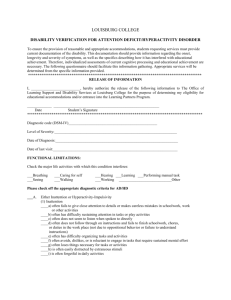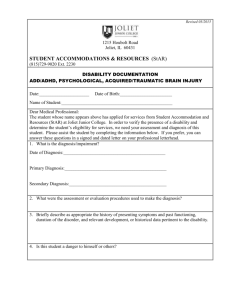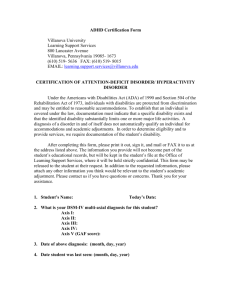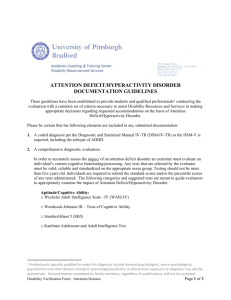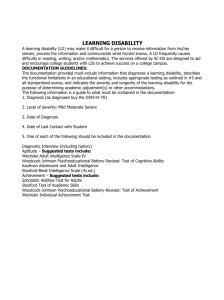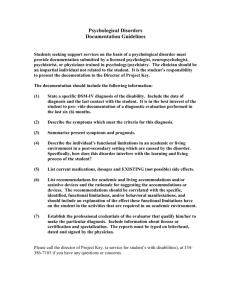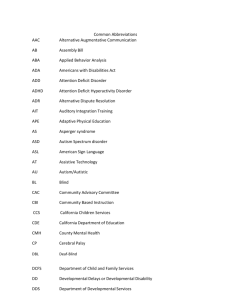rutgers - techcenterblog
advertisement
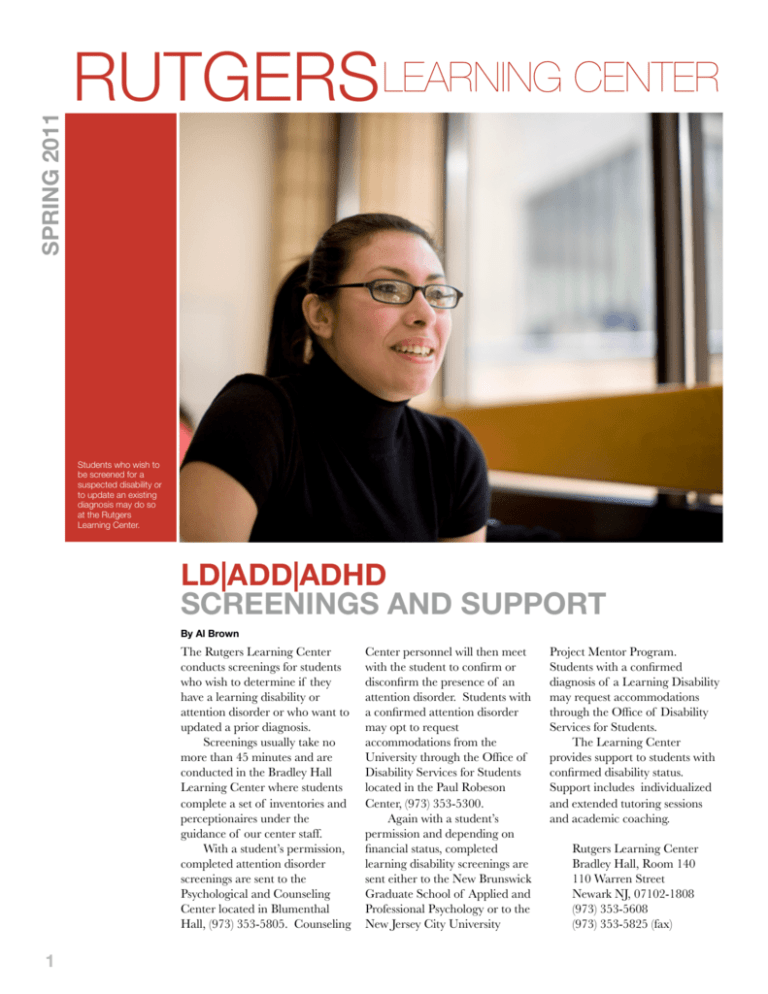
SPRING 2011 RUTGERS LEARNING CENTER Students who wish to be screened for a suspected disability or to update an existing diagnosis may do so at the Rutgers Learning Center. LD|ADD|ADHD SCREENINGS AND SUPPORT By Al Brown The Rutgers Learning Center conducts screenings for students who wish to determine if they have a learning disability or attention disorder or who want to updated a prior diagnosis. Screenings usually take no more than 45 minutes and are conducted in the Bradley Hall Learning Center where students complete a set of inventories and perceptionaires under the guidance of our center staff. With a student’s permission, completed attention disorder screenings are sent to the Psychological and Counseling Center located in Blumenthal Hall, (973) 353-5805. Counseling 1 Center personnel will then meet with the student to confirm or disconfirm the presence of an attention disorder. Students with a confirmed attention disorder may opt to request accommodations from the University through the Office of Disability Services for Students located in the Paul Robeson Center, (973) 353-5300. Again with a student’s permission and depending on financial status, completed learning disability screenings are sent either to the New Brunswick Graduate School of Applied and Professional Psychology or to the New Jersey City University Project Mentor Program. Students with a confirmed diagnosis of a Learning Disability may request accommodations through the Office of Disability Services for Students. The Learning Center provides support to students with confirmed disability status. Support includes individualized and extended tutoring sessions and academic coaching. Rutgers Learning Center Bradley Hall, Room 140 110 Warren Street Newark NJ, 07102-1808 (973) 353-5608 (973) 353-5825 (fax) RUTGERSLEARNING CENTER SPRING 2011 “Set your sights high, the higher the better. Expect the most wonderful things to happen, not in the future but right now. Realize that nothing is too good. Allow absolutely nothing to hamper you or hold you up in any way.” EILEEN CADDY LD|ADD|ADHD HOW YOU CAN HELP By Al Brown Students with diagnosed or undiagnosed attention disorders or learning disabilities may experience unique problems in a classroom that inhibit their ability to perform well. Faculty are in a unique position to observe these students and help them to seek out campus resources. Attention disorder is a condition that causes persistent difficulties of inattention, hyperactivity or impulsivity resulting in difficulty maintaining sustained mental effort, physical or mental quiescence or behavioral control. Students with an untreated attention disorder frequently report that they cannot follow a lecture or read a book with full comprehension for extended periods. They often report that they need to take periodic breaks and experience difficulty completing tasks and meeting deadlines. 2 Learning disabilities manifest as a significant discrepancy between overall achievement and success in one or more areas such as oral or written expression, listening or reading comprehension and math calculation or reasoning. Faculty upon noticing that students are exhibiting these behaviors or reporting these circumstances should suggest that they seek out campus resources such as the Rutgers Learning Center, Psychological and Counseling Center, or the Office of Disability Services for Students. It is not necessary nor advisable to discuss possible diagnoses with students. Rather, note the difficulties or behaviors that are interfering with their performance and recommend that they seek out one or more of the above resources. Assure students that their help seeking and any support provided will be held in strict confidence.
